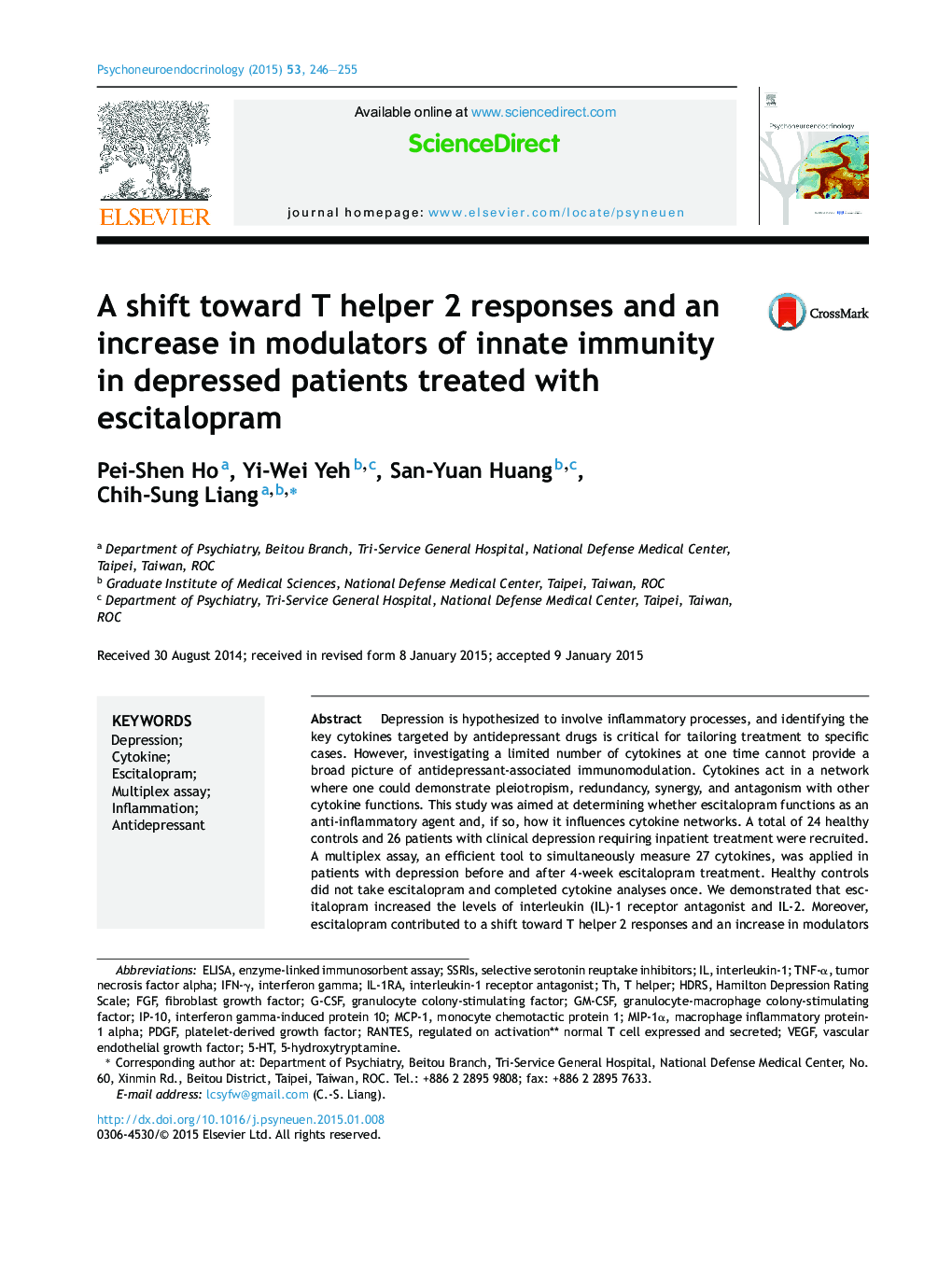| Article ID | Journal | Published Year | Pages | File Type |
|---|---|---|---|---|
| 6819158 | Psychoneuroendocrinology | 2015 | 10 Pages |
Abstract
Depression is hypothesized to involve inflammatory processes, and identifying the key cytokines targeted by antidepressant drugs is critical for tailoring treatment to specific cases. However, investigating a limited number of cytokines at one time cannot provide a broad picture of antidepressant-associated immunomodulation. Cytokines act in a network where one could demonstrate pleiotropism, redundancy, synergy, and antagonism with other cytokine functions. This study was aimed at determining whether escitalopram functions as an anti-inflammatory agent and, if so, how it influences cytokine networks. A total of 24 healthy controls and 26 patients with clinical depression requiring inpatient treatment were recruited. A multiplex assay, an efficient tool to simultaneously measure 27 cytokines, was applied in patients with depression before and after 4-week escitalopram treatment. Healthy controls did not take escitalopram and completed cytokine analyses once. We demonstrated that escitalopram increased the levels of interleukin (IL)-1 receptor antagonist and IL-2. Moreover, escitalopram contributed to a shift toward T helper 2 responses and an increase in modulators of innate immunity, leading to a decrease of immune system activation, both innate and adaptive. We suggest that escitalopram modulates the balance of IL-1 and IL-1 receptor antagonist and improves the function and number of T regulatory cells. However, diverse conclusions could be drawn if only a few cytokines were assessed or different significance levels were used. Further studies should investigate a wide range of cytokines in a reliable and valid way, which is key to disentangling the effects of different antidepressants on inflammatory processes.
Keywords
5-HTSSRIsIFN-γIL-1RAGM-CSFHDRSMCP-15-hydroxytryptamineFGFPDGFIP-10MIP-1αT helperMultiplex assayinterleukin-1 receptor antagonistDepressioninflammationinterleukin-1ELISAEnzyme-linked immunosorbent assaytumor necrosis factor alphaCytokineAntidepressantgranulocyte-macrophage colony-stimulating factorgranulocyte colony-stimulating factorVascular endothelial growth factorVascular Endothelial Growth Factor (VEGF)platelet-derived growth factorfibroblast growth factorG-CSFTNF-αmacrophage inflammatory protein-1 alphaRANTESHamilton Depression Rating Scaleselective serotonin reuptake inhibitorsEscitaloprammonocyte chemotactic protein 1interferon gamma-induced protein 10Interferon gamma
Related Topics
Life Sciences
Biochemistry, Genetics and Molecular Biology
Endocrinology
Authors
Pei-Shen Ho, Yi-Wei Yeh, San-Yuan Huang, Chih-Sung Liang,
